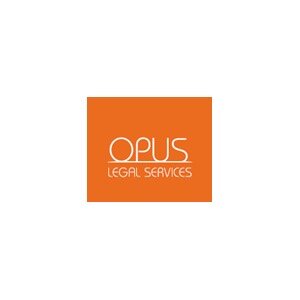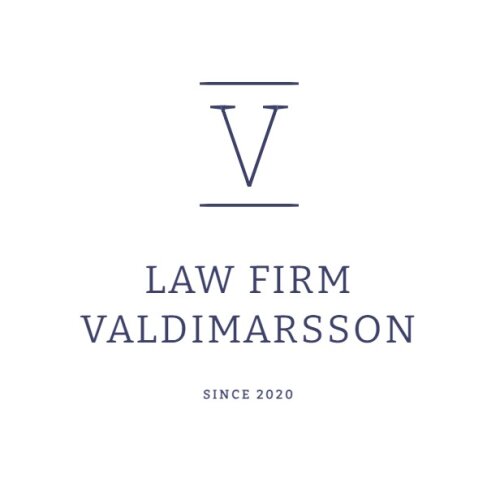Best Nonprofit & Charitable Organizations Lawyers in Iceland
Share your needs with us, get contacted by law firms.
Free. Takes 2 min.
Or refine your search by selecting a city:
List of the best lawyers in Iceland
About Nonprofit & Charitable Organizations Law in Iceland
Nonprofit and charitable organizations in Iceland are primarily governed by laws that focus on their establishment, operation, and regulation. These organizations are vital to Icelandic society, providing services, advocacy, and support in a variety of sectors, including health, education, culture, and social services. The legal framework ensures that these entities operate transparently and in line with their stated missions while enjoying certain exemptions and privileges.
Why You May Need a Lawyer
Engaging a lawyer when dealing with nonprofit and charitable organizations in Iceland can provide valuable assistance in several scenarios:
- Formation and Registration: Assisting with the legal formalities of establishing and registering the organization.
- Compliance: Ensuring adherence to local laws and regulations, including tax obligations and reporting requirements.
- Governance: Advising on best practices for organizational governance and board responsibilities.
- Contracts and Agreements: Drafting and reviewing contracts, including funding agreements and service level agreements.
- Dispute Resolution: Helping resolve disputes either within the organization or with external parties.
Local Laws Overview
Icelandic law provides several statutes and regulations that specifically pertain to nonprofit organizations. Key aspects include:
- Registration: Nonprofits must register with the Company Registry (Fyrirtækjaskrá) to receive legal recognition.
- Taxation: While nonprofit entities might be exempt from certain taxes, they must still comply with tax filing requirements.
- Transparency: Organizations are required to maintain transparent financial records and make them available to stakeholders as needed.
- Non-Discrimination: Laws ensure that charities and nonprofits do not engage in discriminatory practices.
Frequently Asked Questions
What is a nonprofit organization in Iceland?
A nonprofit organization in Iceland is an entity that operates for a collective, public, or social benefit rather than to accrue profits for owners or investors.
How do I establish a nonprofit organization in Iceland?
To establish a nonprofit, you'll need to draft a founding document, define the organization's purpose, and register with the Company Registry.
What tax obligations do nonprofit organizations have?
Nonprofit organizations might be exempt from certain taxes but are required to file tax returns and reports to the tax authorities annually.
Are there restrictions on fundraising activities for nonprofits?
Yes, nonprofits must adhere to specific regulations concerning fundraising, including transparency in how funds will be used.
Can a nonprofit engage in commercial activities?
While primarily focused on non-commercial activities, Icelandic nonprofits can engage in commercial activities provided that profits are reinvested into the organization's primary mission.
Who can serve on the board of a nonprofit organization?
The board of a nonprofit typically comprises individuals dedicated to the organization's mission, and there's no strict requirement, though members often have relevant expertise or interest.
What are the reporting requirements for nonprofits in Iceland?
Nonprofits must regularly report their financial activities, including annual accounts, to ensure transparency and accountability.
Are there legal protections for volunteers in nonprofit organizations?
Yes, Icelandic law provides certain protections for volunteers, ensuring safe and fair treatment in their work with nonprofits.
Can a foreign entity establish a nonprofit in Iceland?
Yes, foreign entities can establish a nonprofit in Iceland subject to compliance with local laws and registration requirements.
What happens if a nonprofit dissolves?
If a nonprofit ceases operations, it must settle any liabilities, and remaining assets should be distributed according to its founding charter and Icelandic laws.
Additional Resources
For those seeking more information or legal guidance, consider reaching out to the following resources:
- Directorate of Internal Revenue: For inquiries about tax obligations and benefits for nonprofits.
- The Company Registry (Fyrirtækjaskrá): For registration and compliance information.
- Local Law Firms: Specialized in nonprofit and charitable organization law.
- The Icelandic Ministry of Social Affairs: Offers resources and guidance for social sector organizations.
Next Steps
If you need legal assistance in the realm of nonprofit and charitable organizations in Iceland, consider the following actions:
- Consult a Lawyer: Seek a legal professional specializing in nonprofit law for personalized guidance.
- Gather Documentation: Prepare essential documents such as your organization’s charter, financial records, and previous legal correspondence.
- Identify Legal Needs: Clearly outline the legal issues or questions you seek to address with professional assistance.
- Stay Informed: Regularly review changes in legislation that pertain to nonprofit operations to maintain compliance.
Lawzana helps you find the best lawyers and law firms in Iceland through a curated and pre-screened list of qualified legal professionals. Our platform offers rankings and detailed profiles of attorneys and law firms, allowing you to compare based on practice areas, including Nonprofit & Charitable Organizations, experience, and client feedback.
Each profile includes a description of the firm's areas of practice, client reviews, team members and partners, year of establishment, spoken languages, office locations, contact information, social media presence, and any published articles or resources. Most firms on our platform speak English and are experienced in both local and international legal matters.
Get a quote from top-rated law firms in Iceland — quickly, securely, and without unnecessary hassle.
Disclaimer:
The information provided on this page is for general informational purposes only and does not constitute legal advice. While we strive to ensure the accuracy and relevance of the content, legal information may change over time, and interpretations of the law can vary. You should always consult with a qualified legal professional for advice specific to your situation.
We disclaim all liability for actions taken or not taken based on the content of this page. If you believe any information is incorrect or outdated, please contact us, and we will review and update it where appropriate.
Browse nonprofit & charitable organizations law firms by city in Iceland
Refine your search by selecting a city.

















